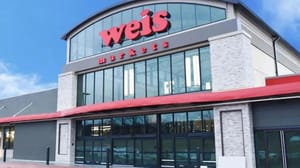2012 Power 50: No. 15 Randall Onstead
Bi-Lo’s acquisition of Winn-Dixie, the biggest merger of the past year in the supermarket industry, might bring back some memories for Randall Onstead, who was named president and chief executive officer of the combined chains.
July 16, 2012
 Bi-Lo’s acquisition of Winn-Dixie, the biggest merger of the past year in the supermarket industry, might bring back some memories for Randall Onstead, who was named president and chief executive officer of the combined chains.
Bi-Lo’s acquisition of Winn-Dixie, the biggest merger of the past year in the supermarket industry, might bring back some memories for Randall Onstead, who was named president and chief executive officer of the combined chains.
Twenty years ago he managed the integration of the chain his father founded and named after him, Houston-based Randall’s, with Dallas-based Tom Thumb. In some ways, Onstead might be facing some similar challenges with the integration of the two Southeastern stalwarts, which will be based in Winn-Dixie’s headquarters of Jacksonville, Fla., with a regional support office in Greenville, S.C.
“One of the most important steps we are taking during our integration process is to combine the store support centers of both Bi-Lo and Winn-Dixie,” he told SN. “The process has already begun, and we believe the restructuring we are doing today will create an organization that will more efficiently serve our customers, store teams and communities.”
He said the company is also seeking to create opportunities for its workers, “through cross-pollination of people, ideas and brands.”
Neil Stern, senior partner with Chicago-based McMillanDoolittle, said Onstead’s challenges fall into two buckets: Achieving back-end efficiencies through the integration of the two entities, and creating a corporate culture and a strategy to serve the organization for the future.
“Knowing Randall, he’s not going to be content with running the company based on the financial synergies alone,” Stern said. “He’s going to want to figure out a competitive advantage they can have in a very tough marketplace, with Publix on one side and Wal-Mart on the other.”
The combined chains have 688 supermarkets across eight states in the Southeast, about 63,000 employees and revenues approaching $10 billion. Plans call for the stores to continue operating under the two distinct banners.
“We are confident that this combination will be successful because Bi-Lo and Winn-Dixie have many similarities,” Onstead told SN. “Both companies have a long history as traditional, Southern supermarkets. We are similar in our company vision and values.”
In addition, both companies have some similar merchandising and marketing strategies — both use loyalty cards, offer in-store pharmacies and have some similar styles of promotions, and both were seeking to rebuild after bankruptcy. Winn-Dixie was in the midst of conducting a series of “transformational” remodels on its stores, which were driving double-digit sales gains, while Bi-Lo had a remodeling program of its own under way.
One key difference between the two banners, observers note, is the source of supply — Bi-Lo is supplied by C&S Wholesale Grocers, while Winn-Dixie is self-distributing through its six warehouses. Analysts have speculated that the company could eventually adopt either model for the entire network of stores when Bi-Lo’s contract with C&S expires.
The combined company has a strong team of executives, Stern noted. Although Peter Lynch, the former Albertsons president who led Winn-Dixie through bankruptcy, has left the company, Bi-Lo retained Michael Byars as president of the Bi-Lo division in Greenville, S.C., and several other key executives from the two chains.
“We will continue to invest in Greenville and the state of South Carolina,” Onstead said. “We remain committed to the plans in place locally to continue supporting our customers.”
He said the company will remain focused on serving individual communities at the store level, and supporting local charities.
“It is important to both Bi-Lo and Winn-Dixie that we are involved in the communities in which we serve,” he said. “Together, we want to keep our focus on caring, listening, learning and responding to the needs of our communities. In the future, our community focus will grow and evolve from sponsorships to being locally involved and connected.”
About the Author
You May Also Like




